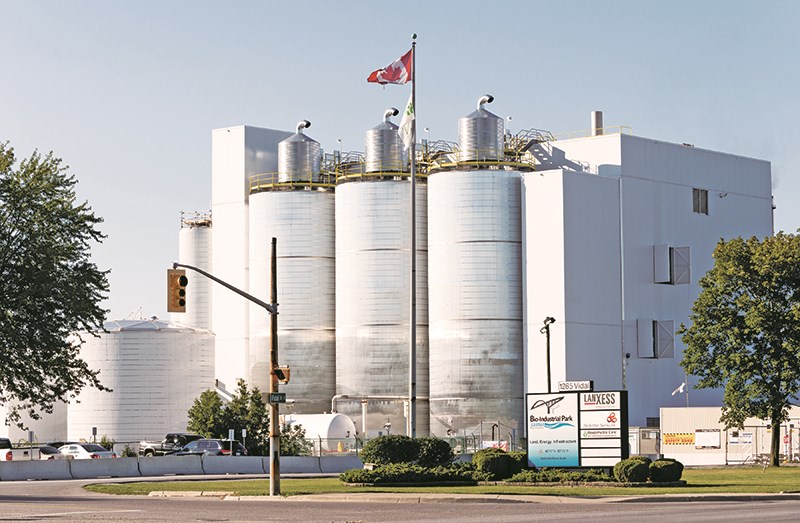Troy Shantz
A failed Sarnia bioplastics plant has been resurrected and is once again turning Ontario corn syrup into a key ingredient of biodegradable plastics.
BioAmber was the flagship for a cluster of fledgling bio-based “green” companies in Sarnia before it declared bankruptcy and ceased operations in 2018, leaving 60 people unemployed.
After buying the plant and investing millions, LCY Biosciences Inc. is today producing more succinic acid than its predecessor did.
“It is increasingly in demand all over the world, simply because every country recognizes that single-use plastic is a very big issue,” said LCY general manager Dex Hsu.
“Biodegradable material made from succinic acid will be one of the solutions.”
BioAmber was making 8,000 tonnes of succinic acid annually. Today LCY, which is headquartered in Taiwan, is producing 18,000 tonnes and the goal is to hit 30,000 tonnes by 2023, Hsu told The Journal.
The Vidal Street plant has also launched a nutraceutical line that’s making health-related products.
“LCY Group (has been) a chemical company for more than 50 years. We have a lot of experience in mass production and commercialization,” Hsu said.
Succinic acid is made using fermentation and genetically modified yeast, a process not unlike that used in breweries, he explained.
The process is cleaner and more eco-friendly than traditional petrochemical refining, and it generates no harmful volatile organic compounds, or VOCs.
The local plant exports 98% of its succinic acid to foreign markets. The white, sugar-like powder is converted into a biodegradable polymer used in food packaging - including the lining inside paper cups - which breaks down easily in landfills, Hsu said.
The polymer is made is Asia for markets in Europe, where governments are increasingly limiting single-use plastics, Hsu explained.
LCY is also using fermentation to make “carotenoids,” the group of pigments that give the characteristic colour to carrots and pumpkins. Beta-carotene, which the body converts to Vitamin A, is used in food, nutrition products, cosmetics, and animal feed.
Carotenoids are highly sought after for instant noodles in Asian markets and give the product its orange colour, Hsu said.
“It’s a trend. I see a lot of colleges and universities actually looking into these kinds of renewable technologies. They want to use fermentation to produce a lot of chemicals,” Hsu said.
LCY’s Sarnia plant currently has 51 employees, mostly engineers and operators, and it’s working on plans to expand in the Chemical Valley, he added.
